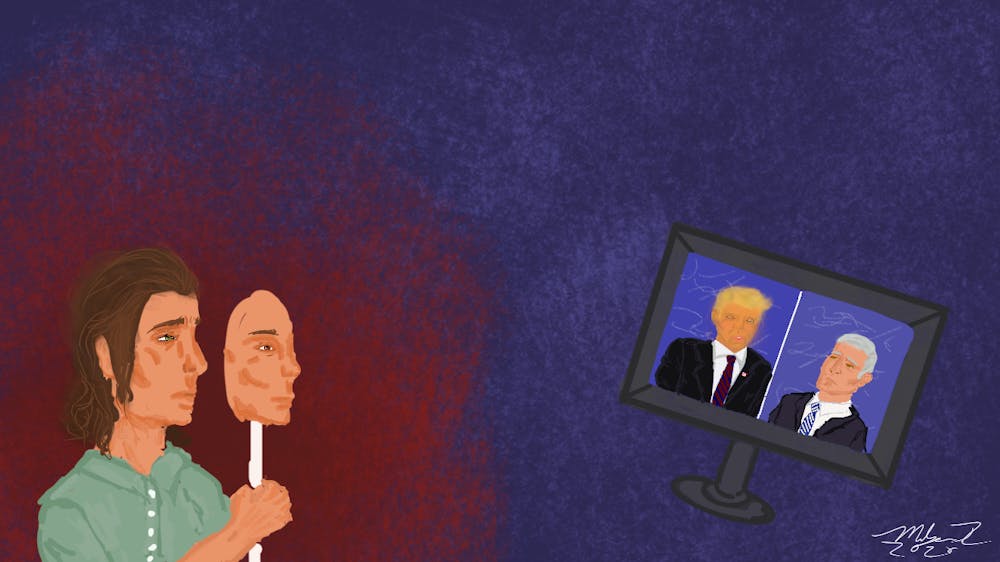Election Day is Nov. 3, and for many Ohio University students and professors across the political spectrum, it has been a taxing period for their mental health.
This will be the first presidential election some OU students are able to participate in. In order to aid in the election process, professors are working to incorporate election information in their lesson plans.
Lauren Elliott-Dorans, a political science professor, said she has been providing information for students on the voting process.
“I post on Blackboard basically a list of resources, or how to check where you're registered, whether you're registered, how to actually register, the process of requesting an absentee ballot and all of that,” Elliott-Dorans said.
OU staff have been working to get the essential information out in order for students to feel prepared for the upcoming election.
“This election is a little more chaotic than normal. So (OU students) are really getting... training by fire here in terms of figuring out how to vote during a pandemic, when a lot of things are really unpredictable right now,” Elliott-Dorans said. “I have gotten a few questions. A lot of it is just kind of clarifying questions like, ‘Hey, I looked it up I think this is my early vote center, can you double check for me?,’ ‘Where do I go to find this information?,’ I've been answering a lot of questions like that. So I think my role here is just really to get the non-partisan information out.”
Aya Cathey, a freshman studying journalism, said the election has caused problems for her mental health.
“It has been mentally and emotionally draining,” Cathey said in an email. “I spend so much time reading and encouraging my peers to be engaged but it still feels like it’s not enough. I’ve had countless arguments and lost friends over this election which were difficult, but crucial learning experiences.”
Seth Devine, a sophomore studying music production, has also been emotionally impacted by the election.
“This election has affected my mental health greatly. I’m really scared about the outcome,” Devine said in an email. “I can’t even imagine what I’ll do if the unfavorable outcome happens. It’ll ruin what’s left of my mental health.”
The election has also caused a plethora of distractions for students, such as excessive internet usage and having a harder time focusing in classes.
“I’m always looking at social media to see what is happening. I’ll check during classes and everything,” Devine said. “I was working during the first debate and I kept checking my phone to see what was happening.”
Some students have experienced a change in ideology with the election, forcing them to cope with the outcome.
“At the beginning of the election process, I truly did not predict (Joe) Biden would win the nomination, especially considering the record-breaking number of candidates we had this year,” Cathey said in an email. “I’ve had to adjust to supporting his campaign, and ultimately settle.”
Despite the distractions and mental health complications students have faced, Elliott-Dorans believes that students should still be active in the election.
“I hope the students realize that they should vote,” she said. “It doesn't matter who you vote for, as far as I'm concerned, but just knowing that it's important and it impacts you.”
Some students also believe the election is important to participate in despite the hardships faced throughout.
“This election, our (nation’s) democracy is on the line and that is more important to me than voting for who I originally wanted to see as president,” Cathey said in an email.






